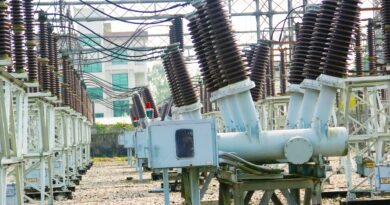Beyond the Surface: Unveiling the Hidden Dangers in Bhiwadi’s Electrical Safety Audits
Introduction
As the industrial sector continues to grow rapidly in Bhiwadi, the need for stringent safety measures becomes paramount. Among these measures, electrical safety audits play a vital role in identifying potential hazards and ensuring a safe working environment for employees. However, beneath the surface, there are hidden dangers that need to be uncovered and addressed to enhance the effectiveness of these audits. This article delves into the hidden dangers in Bhiwadi’s electrical safety audits, exploring key issues and providing actionable insights for a safer working environment.
Table of Contents
- The Importance of Electrical Safety Audits
- Challenges in Conducting Effective Audits
- Inadequate Training and Knowledge
- Lack of Proper Documentation
- Ignoring Maintenance and Testing Procedures
- Overlooking Human Factors
- Hidden Dangers Revealed
- Outdated Electrical Systems
- Inadequate Grounding and Bonding
- Overloading and Poor Wire Management
- Inadequate Protection Devices
- Lack of Proper Emergency Preparedness
- Enhancing Electrical Safety Audits
- Investing in Training and Education
- Implementing Comprehensive Documentation Practices
- Emphasizing Preventive Maintenance and Testing
- Addressing Human Factors
- Conclusion
- FAQs
The Importance of Electrical Safety Audits
Electrical safety audits are essential for any industrial facility in Bhiwadi. They help identify potential electrical hazards, ensure compliance with safety regulations, and prevent accidents that could lead to injuries, fatalities, or property damage. By conducting regular audits, businesses can proactively address electrical safety concerns and create a secure working environment for their employees.
Challenges in Conducting Effective Audits
While electrical safety audits are crucial, there are several challenges that hinder their effectiveness in Bhiwadi. It is important to address these challenges to ensure the audits provide comprehensive and accurate results.
1. Inadequate Training and Knowledge
One of the primary challenges is the lack of proper training and knowledge among auditors. Conducting electrical safety audits requires specialized skills and expertise. Without the necessary training, auditors may miss critical safety issues or misinterpret potential risks, leading to incomplete or inaccurate audits.
2. Lack of Proper Documentation
Another challenge is the lack of comprehensive documentation practices during audits. Inadequate documentation makes it difficult to track audit findings, monitor progress, and ensure timely corrective actions. Proper documentation is essential for maintaining an effective electrical safety program.
3. Ignoring Maintenance and Testing Procedures
Electrical systems require regular maintenance and testing to ensure their safety and reliability. However, auditors often overlook these procedures during their assessments, focusing solely on visual inspections. Neglecting maintenance and testing can result in undetected issues that may pose significant risks to personnel and property.
4. Overlooking Human Factors
Human factors play a critical role in electrical safety. Auditors should consider factors such as human behavior, training, and adherence to safety protocols. However, these aspects are often overlooked, leading to a gap in identifying potential risks associated with human error.
Hidden Dangers Revealed
To achieve comprehensive electrical safety audits, it is crucial to uncover the hidden dangers that may exist within industrial facilities in Bhiwadi. These dangers require attention and immediate corrective actions.
1. Outdated Electrical Systems
Many industrial facilities in Bhiwadi operate with outdated electrical systems. These systems may lack modern safety features, making them more susceptible to electrical failures, short circuits, and fires. Upgrading and modernizing electrical systems should be a priority to mitigate these risks.
2. Inadequate Grounding and Bonding
Improper grounding and bonding can lead to electrical shocks, equipment damage, and even electrocution. Faulty grounding systems may result from poor installation, lack of maintenance, or inadequate knowledge about grounding requirements. Auditors must carefully assess grounding and bonding practices to ensure their effectiveness.
3. Overloading and Poor Wire Management
Overloading electrical circuits and improper wire management pose significant risks. Overloaded circuits can overheat and cause fires, while poor wire management can lead to wire damage, short circuits, and electrical malfunctions. Auditors must inspect electrical panels, wire routing, and load distribution to identify and rectify these hazards.
4. Inadequate Protection Devices
Electrical protection devices, such as circuit breakers and fuses, are crucial for preventing electrical accidents and mitigating the impact of faults. However, inadequate or malfunctioning protection devices can compromise safety. Auditors should verify the proper functioning and suitability of protection devices during their assessments.
5. Lack of Proper Emergency Preparedness
Preparing for electrical emergencies is essential to ensure the safety of personnel and minimize potential damages. However, many industrial facilities in Bhiwadi lack proper emergency preparedness plans. Auditors should assess the availability of emergency shutdown procedures, fire suppression systems, and evacuation plans to address potential risks effectively.
Enhancing Electrical Safety Audits
To address the hidden dangers and improve the effectiveness of electrical safety audits in Bhiwadi, the following steps should be taken:
1. Investing in Training and Education
Auditors should receive comprehensive training and education on electrical safety standards, regulations, and best practices. This will enable them to conduct thorough audits, identify potential hazards accurately, and recommend appropriate corrective actions.
2. Implementing Comprehensive Documentation Practices
Maintaining detailed documentation throughout the audit process is crucial. Auditors should document their findings, recommendations, and corrective actions in a standardized format. This documentation will help track progress, monitor compliance, and ensure timely resolution of identified issues.
3. Emphasizing Preventive Maintenance and Testing
Auditors must prioritize preventive maintenance and testing procedures during audits. This includes inspecting electrical equipment, conducting routine maintenance, and performing necessary tests to identify potential risks. Regular maintenance and testing are vital for minimizing electrical failures and ensuring the overall safety of the facility.
4. Addressing Human Factors
Considering human factors in electrical safety audits is essential. Auditors should assess employee training, adherence to safety protocols, and the effectiveness of safety awareness programs. By identifying and addressing human factors, auditors can enhance the overall safety culture within the organization.
Conclusion
Unveiling the hidden dangers in Bhiwadi’s electrical safety audits is crucial for creating a safe working environment within the industrial sector. By addressing challenges, uncovering hidden dangers, and implementing improvement measures, businesses can ensure comprehensive and effective electrical safety audits. Prioritizing training, documentation, preventive maintenance, and human factors will lead to safer industrial facilities in Bhiwadi.
FAQs
1. Are electrical safety audits mandatory in Bhiwadi?
While there might not be a specific legal requirement for electrical safety audits in Bhiwadi, they are highly recommended to ensure compliance with safety regulations and create a secure working environment.
conduct electrical safety audits at least once a year. However, industries with higher risks or those operating in hazardous environments may need more frequent audits, such as quarterly or semi-annually.
3. Can internal personnel conduct electrical safety audits, or should external auditors be hired?
Both options are viable. Internal personnel who are well-trained and knowledgeable in electrical safety regulations can perform audits effectively. However, hiring external auditors can provide an unbiased perspective and bring fresh insights to the audit process. The decision depends on the resources, expertise, and specific needs of the organization.
4. How long does an electrical safety audit typically take?
The duration of an electrical safety audit depends on the size and complexity of the facility being audited. Smaller facilities may require a few days, while larger industrial complexes might take weeks to complete a thorough audit. The audit timeframe should be determined during the planning stage to ensure sufficient time for a comprehensive assessment.




